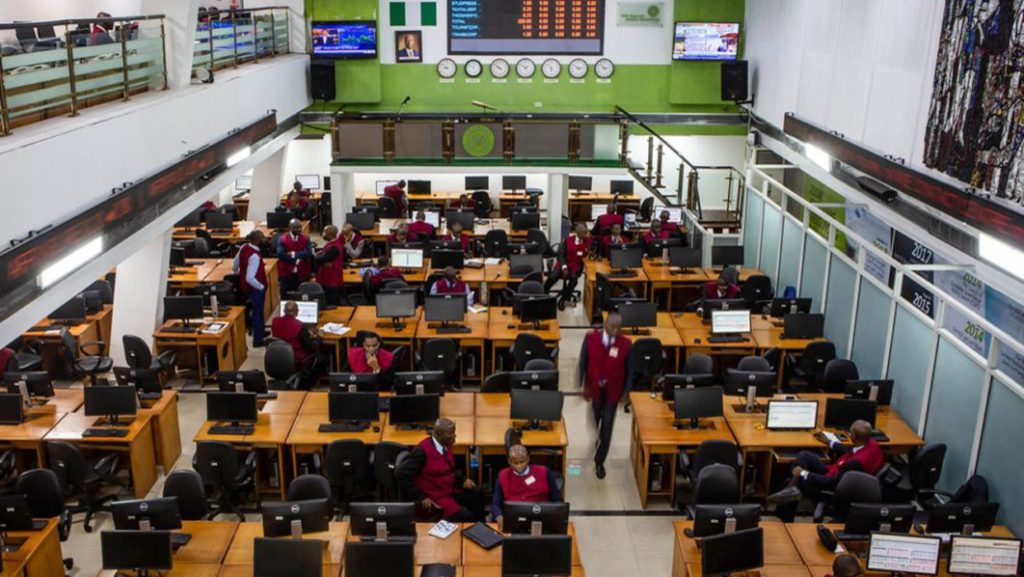At the close of Thursday’s trading session, the Nigerian equity market faced a notable setback, with a decline of N671 billion attributed mainly to the underperformance of Dangote Cement. The market capitalization and all-share index fell by 1.19%, landing at N55.8 trillion and 97,064.42, respectively. This decline marks a one-week decrease of 1.94%. In contrast, the market displayed a modest four-week gain of 0.2% and an impressive year-to-date increase of 29.81%. The fluctuations in the market underscore the volatility often observed in equity trading, significantly influenced by the performance of key players like Dangote Cement.
On Thursday, a total of 268,394,149 million shares were exchanged through 8,565 trading deals, which amounted to a market value of N6.76 billion. However, these numbers reflected a deterioration compared to the previous trading day, with a 37% drop in trading volume, a 20% decrease in turnover, and a 28% drop in the number of deals. This downturn in activity illustrates a cautious sentiment among investors, potentially fueled by the notable losses in high-profile stocks, which often serve as bellwethers for the market’s overall health and dynamics.
During Thursday’s session, out of 119 listed equities, 23 recorded gains while 28 faced losses. Seplat Petroleum Development Co. stood out as the top performer, with its share price rising by 10%. In addition to Seplat, other significant gainers included Livestock Feeds, which rose by 9.93%, Regency Alliance Insurance, up by 9.76%, and Caverton Offshore Support Group, whose shares increased by 9.63%. In stark contrast, the session was marked by substantial losses for Dangote Cement and McNichols, which both dropped by 10%. The losses extended to other significant players in the market, such as Secure Electronic Technology (-7.58%) and UPDC Real Estate Investment Trust (-4.72%), highlighting the overall challenging trading conditions.
Particular stocks led the day in terms of trading volume, with United Bank for Africa fetching the highest at 37.1 million shares. This was followed closely by Zenith Bank with 19 million shares, Deap Capital Management & Trust with 13.9 million, and Sterling Bank with 13.1 million. The trading volumes of these banks reflect their significant roles in the market, displaying how banking stocks can impact overall market performance during challenging periods. Large volumes often indicate heightened investor interest, though the performance of these stocks still varies widely, showcasing the mixed sentiments prevalent in the market.
The previous trading day saw a similar trend of declining values, as the Nigerian Stock Exchange reopened after the Nigeria independence public holiday. On Wednesday, the market suffered a loss of N188 billion, with the all-share index declining by 0.33% to close at 98,232.39 and market capitalization standing at N56.5 trillion. In terms of trading activity, 425,764,914 shares were exchanged in 11,954 transactions, which reflects a 27% drop in volume relative to previous sessions. Contrarily, turnover did see a 7% improvement, and the number of deals increased by 13%. This indicates that while overall trading volume declined, there was still a sustained interest in engaging in market transactions, hinting at underlying demand.
In summary, the Nigerian equity market is currently experiencing volatility primarily driven by the fortunes of major companies such as Dangote Cement. Recent trading activity has illustrated a mixed bag of investor sentiment, with substantial declines alongside some notable gains in specific stocks. While key players like Seplat Petroleum and various banks demonstrate considerable trading volumes, the overall decline speaks to a market characterized by caution and reactive trading strategies. As the market navigates through these challenges, investors and analysts will be keenly monitoring further developments, trading patterns, and economic indicators to gauge future performance.


